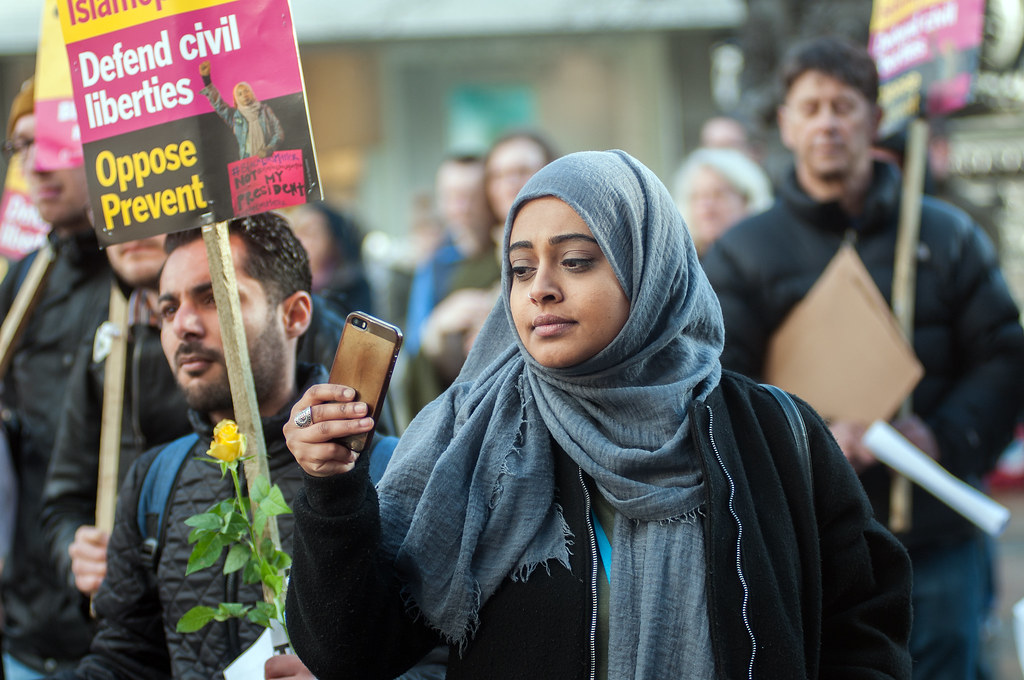Despite the progress in political and civic involvement of Muslim Americans in American society since the attacks of Sept. 11, the issue of Islamophobia is still prominent in the United States.
Though many people are as hostile toward Muslim Americans as in the past, there is still a prevailing mindset of prejudice and animosity toward Muslims and Arabs.
22 years ago, New York City witnessed the deadliest and most unprecedented terrorist attacks that still haunt many people today. Sept. 11, 2001, was an unforgettable day in history: 2,996 people were killed, including 19 terrorist hijackers, 78 foreigners, 343 firefighters plus paramedics, 23 NYPD officers and 37 PAPD officers.
However,there were more than 2,996 victims because of the unprecedented style of terrorism unleashed on U.S. soil, leading to over two decades of mental health effects and trauma that countless innocent people have to now embrace.
The effect of 9/11 on Muslim, Arab and South Asian Americans was profound.
The immediate outcome of the 9/11 attacks was upon immigrants of Muslim, Arab or South Asian origin. President George W. Bush gave a speech at the Islamic Center in Washington D.C. following the attacks. He said, “Islam is peace,” hoping to prevent hate crime or discrimination in the U.S. against Muslim Americans.
Unfortunately, this was not the case. Following the terrorist attacks, there has been a rise in Islamophobic sentiments towards Muslims. A year later in 2002, 25% of the US population said Islam encouraged violence. That number has progressively risen with 50% of Americans believing that Islam encourages violence.
According to the FBI, in 2000, there were 28 incidents of anti-Muslim crimes in the United States. In 2001, that number rose to 48. The number of hate crimes against Muslims are still high, hovering around 100-150 hate crimes from 2002-2014 and rising to over 200 hate crimes from 2015-2017.
The hate crimes themselves detail Muslim Americans’ pain and suffering stemming from that day. Aleena Ijaz told The Harvard Gazette, “It also digs into the lives of Muslim Americans, marked by the scarlet letters imprinted on them by terrorists with whom they shared nothing in common save for one imperfect classification: Muslim.”
Though 9/11 had an immediate negative impact on Muslim Americans, it should be noted that progress was made on eradicating hatred and Muslims have risen and attempted to push against rising Islamophobia.
Since 2007, there have been 4 Muslims elected to Congress. Mussab Ali, the first Muslim to be elected to the Jersey City Board of Education in 2017, had stated Islamophobia as his inspiration, regarding Donald Trump’s false claim that Muslims in New Jersey were cheering after the collapse of the twin towers.
In New York City, the epicenter of the terrorist attacks, Shahana Hanif became the first Muslim American woman elected to the New York City Council in the 2021 local elections.
Since the 9/11 terrorist attacks, America’s Muslim population has been growing significantly, making them the fastest growing religious group in the United States. There has been an increase in 1.1 million Muslims from 2007 to 2017, making up 1% of the total US population.
By 2050, they will grow to 8.1 million, making up around 2% of the US population, so putting an end to Islamophobia is important now more than ever.
On this Sept. 11, we must remember the resilience and courage of many of the Muslim, Arab and South Asian Americans who put up with unfair discrimination and victimization of hate crimes for something they were not responsible for, for something they condemned and sympathized with as much as anyone else did in the United States and around the world.
On this anniversary of the Sept. 11, 2001, attacks, the world must remember that Muslim Americans were also victims of these acts of evil and still are.
The world must remember that Muslim Americans were also victims of these evil acts and still are.






